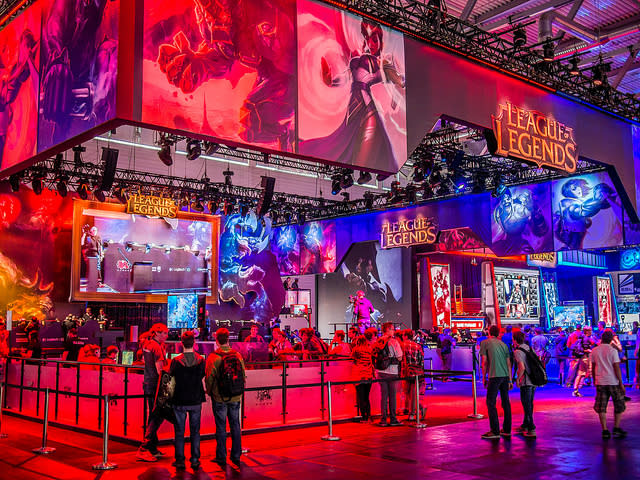Women and the Boundaries of eSports

The gender boundaries of traditional athletics are straightforward. Women compete against other women, and men against other men. Weight classes and physical characteristics further divide men and women. In some cases this prohibits physically dissimilar athletes from competing against each other.
eSports are a different beast altogether. Their virtual nature allows participation to be much more inclusive. It doesn't matter what you look like, only what you can do - at least in theory. Fast twitch reflexes, vast in game knowledge, and coordinated team efforts are all prized in the eSports arena. In practice, women seem to be almost completely absent from the competitions and the organizations who host them.
eSports are traditionally marketed exclusively to men between the ages of 21 and 34. Despite this, women comprise nearly 30% of eSports viewership. For team-based games like League of Legends or DOTA 2, there are several high profile tournaments each year that garner millions of unique viewers. Between 2009 and 2014, there were zero female professional League of Legends players despite the game being the most popular eSport in the world. In 2015, Maria Creveling became the first female professional League of Legends player to ever reach the League Championship Series.
Examining the evolution of women's athletics highlights why so few women are playing eSports, despite viewing them in large numbers. In athletics, 40% of all sports participants are female, yet women's sports receive only 4% of all sports media coverage. If the comparison between viewership and female playerbase indicate anything, it is evident that women face systemic exclusion from integrated mainstream eSports professional play. Online verbal abuse exacerbates the situation by excluding would-be female players. Riot Games, the publisher of League of Legends, has made significant efforts to curb this online culture of toxicity. Their honor initiative and chat monitoring measures have cleaned up much of the sexist and hate-filled interactions that the game was notoriously known for.
Richard Procter wrote about the subject of online female gamer harassment in his article "How Women In eSports Deal With Twitch Toxicity Every Day." In reference to a panel held at the convention, Mr. Procter writes, "The panelists also discussed the idea of having women-only eSports tournaments. The general consensus was that such tournaments might be beneficial in the short term to create a welcoming environment for ladies interested in competing in eSports events. But they expressed frustration that such reasoning was necessary and hoped it wouldn't always be the case."
When women do play eSports they are often segregated. This can occur as a defense mechanism against sexism, or as an organizational method of dividing genders in the mainstream side of the sport. Female only tournaments may appear to help in the short term, but do nothing to promote long term equality. Tournaments exclusively for women do bring visibility to the sport and the women playing them. However, the long-term viability of this practice is questionable and undoubtedly the sport needs diverse participation to grow.
When we strive to accomplish something, we attach ourselves to role models. It is particularly challenging to succeed in an industry where there are few people similar to yourself, as is the case for the majority of women. There are several influential women in the gaming industry, but unfortunately too few have any involvement in eSports. If the business world is any indicator, integrated female leadership in the eSports community would ultimately strengthen the sport in both participation and viewership. More than this, excluding half of the world's population inherently reduces the eSports talent pool. This division among the community is a missed opportunity to erase misogyny and increase engagement.
Physical ability and gender have no bearing on the capability to play eSports. Encouraging women to participate will grow the sport and demonstrate that video games can be enjoyed by anyone regardless of gender. Women of all ages need to be shown that video games and eSports are a place that they can participate as equals without be ostracized for pursuing their interests. Mutual respect and equality of representation is an admirable goal within the larger industry. Creating an inviting environment for women in eSports and online gaming is a smart business move that will contribute toward solving the toxic harassment and 'bro culture' within these communities. It's time to tear down the boundaries and allow equality of opportunity for everyone with the skill to compete.
David Kirby is a screenwriter, editor, and columnist. You can find more of his work at the Huffington Post.
